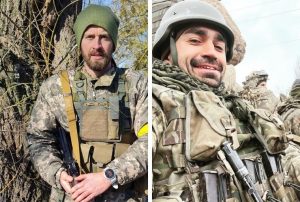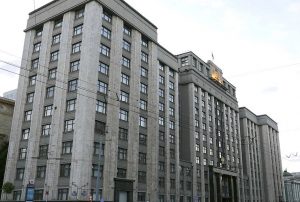London – Even exile does not prevent Russian journalists critical of the government of Vladimir Putin and the war in Ukraine from being censored and persecuted based on the “fake news” law passed by the Russian parliament in March.
Two independent journalists were arrested in absentia on the grounds that they were abroad and did not appear in court where the indictment was presented.
Ruslan Leviev and Michael Nacke are no longer in Russia, but the Kremlin placed their names on the international wanted list and ordered two months of emergency detention until they were caught. If found guilty, they could face 5 to 10 years in prison.
window.uolads.push({ id: "banner-300x250-3-area" });
Censorship in Russia even affects those outside the country
The indictment against Ruslan Leviev, founder of the independent investigative project Conflict Intelligence Team (CIT), was presented to the Basmanny Court in Moscow on May 18.
He had fled Russia on March 3 and was arrested by the judge for “spreading fake news” about the army and the invasion of Ukraine. Nacke has been out of the country for two years.
Just a day after Leviev left the country, the Russian parliament Duma, the so-called “fake news lawIt forbids domestic and foreign media to publish information about the war, except those approved by the Kremlin.
By law, journalists and media outlets can only call the war a “special operation” and not report on the actions of the Russian army in the neighboring country.
Stanislav Seleznyov, a lawyer for the Russian free speech legal aid agency representing the two journalists, said he had access to court documents and that the allegations stemmed from a video Michael Nacke posted on his YouTube channel on March 5.
On the program, the two journalists discussed Russia’s bombing of the Zaporizhzhia nuclear power plant in southeastern Ukraine on March 4. The investigator assigned to the case said the video contained elements that “conflicted” with Russia’s official war narrative.
Nacke called Russia’s invasion of Ukraine a “war” rather than a “special operation”, and Leviev said Russian claims that Ukrainians attacked the facility were “deceptive”.
The inspector claimed that Leviev and Nacke “conspired to create negative public opinion against the Russian military and to persuade the public to use the Russian army against civilians and to destroy civilian infrastructure in Ukraine.”
On May 12, the Russian Ministry of Internal Affairs put both on the international wanted list.
On May 24, a week after Leviev’s trial, the same court issued an arrest warrant in absentia for YouTuber Michael Nacke on the same charge.
read it too
From the newsroom to the front: the stories of journalists who went to war in Ukraine
On Twitter, Ruslan Leviev shared what he knows about the case. “According to the documents I learned that my case was handled by an inspector in the important cases of the crime investigation department, especially in the field of cybercrimes (!!) and high technologies.”
Из материалов дела, имеющихся в суде, узнал, что моё дело ведёт следователь по особо важным делам отдела по расследованию киберпреступлений (!!) и преступлений в сфере высоких технологий управления по расследованию отдельных видов преступлений Главного следственного управления СК pic.twitter.com/qXWvOAzIcg
— Руслан Левиев (@RuslanLeviev) 21 May 2022
In March, the journalist said in a statement on his social media account that he fled Russia to Georgia due to fear of censorship and punishment for his work.
“Hey, I left Russia a long time ago, check your flight log. I moved from my address in Moscow a long time ago and took all my stuff there. Stop looking for me there. I’m in Georgia.”
To the Mediazone website, Leviev confirmed on March 3 that he wanted to go into exile to another country. The CIT team is also in Georgia,” he said.
Фбшникам ve предстаyer ск, которые прожают искать веня воскney: у, я поко рроungs Я давно съехал с адреса в Москве, где раньше жил ve вывез все свои вещи. Хватит искать меня там. Я в Грузии.
— Руслан Левиев (@RuslanLeviev) 25 March 2022
In a video posted on his YouTube channel on May 18, Michael Nacke said he learned of the criminal case from the news and had not received any official notice of the charges. He said he did not plan to return to the country due to censorship during the Putin administration.
According to the law passed in March, journalists are sentenced to 5 to 10 years in prison if found guilty. The law acted as an instrument of censorship, leading to the closure of tools opposed to the Russian government, the deportation of professionals, and the disruption of reporting by foreign correspondents.
A new law proposed in parliament could worsen the situation and formalize Vladimir Putin’s government’s powers to interfere with opposition media and revoke the licenses of international reporters without legal action.
read it too
Censorship in Russia: New law seeks to deport reporters and shut down newspapers without prosecution
Complaining about censorship and persecution, Gulnoza Said, CPJ’s Europe and Central Asia program coordinator, said:
“The Russian authorities should immediately drop all charges against Ruslan Leviev and Michael Nacke and allow journalists to report freely about the war.”
read it too
source: Noticias

